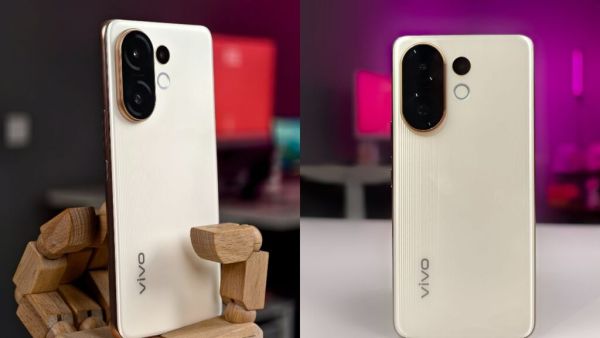Rapido, best known for shaking up India’s ride-hailing market, is taking a swing at another entrenched duopoly. The company has quietly rolled out its food delivery app, Ownly, in select Bengaluru pin codes, positioning itself against Zomato and Swiggy.
The pitch is familiar: do what Uber couldn’t and Ola failed at. Rapido is betting its cost structure will make the difference. While incumbents charge restaurants commissions of 16–30%, Ownly is offering a leaner 8–15%. Consumers, meanwhile, will pay a fixed delivery fee — Rs 25 for orders below Rs 400 and Rs 50 for higher-value orders. For a market conditioned by high commissions and deep discounts, the model looks disruptive.

Entering a slowing market
Rapido’s challenge comes at a time when growth in food delivery has plateaued.
After a pandemic-driven surge, both Swiggy and Eternal (parent of Zomato) are facing slower demand and margin pressures. Swiggy’s April–June quarter was weighed down by seasonal shortages of delivery partners, while Eternal’s food business has been sluggish and is preparing for another investment-heavy phase that could squeeze profitability.

Also Read: Spurring food delivery growth, keeping discipline intact for Blinkit key: Zomato CEO Deepinder Goyal
This creates an unusual entry point. On the one hand, incumbents are guarding market share and focusing on efficiencies.
On the other, restaurants squeezed by high commissions are more open to alternatives. Rapido hopes its lower rates and predictable delivery fees will help it carve a niche.
History of failed attempts
But breaking into food delivery in India has proved near impossible. In 2020, Uber shut down Uber Eats, selling it to Zomato for $350 million in an all-stock deal. At the time, the business was burning an estimated $20 million a month and had already exited several cities.
Ola has tried multiple times and failed. Ola Cafes, launched in 2015, was shuttered within a year.
In 2017, Ola bought Foodpanda from Delivery Hero for Rs 200.7 crore, but by 2019 the service was wound down and employees laid off. Later, Ola Dash briefly dabbled in 10-minute food delivery through its grocery platform but closed it in early 2022 after shifting focus to cloud kitchens and equipment sales.
Rapido’s playbook
Rapido believes it has a template from its own past. In ride-hailing, it entered late but carved a space by focusing on bike taxis and targeting urban commuters who wanted affordable, fast options. That bet helped Rapido survive where other challengers struggled.
With Ownly, Rapido is trying something similar, offering restaurants a better deal, consumers predictable costs, and leveraging its large fleet of two-wheeler drivers across both businesses. By cross-utilising supply, Rapido argues it can keep unit costs lower than incumbents and pass on some of those savings.
Still, the challenge is daunting. Zomato and Swiggy benefit from massive restaurant networks, loyalty programs, and consumer trust built over years. Their ability to subsidise deliveries strategically, roll out new categories, and invest in technology makes them hard to unseat.
Even Zomato CEO Deepinder Goyal recently said he sees no “obvious threat” to the duopoly, reflecting the incumbents’ confidence. The market share numbers back him up, Zomato and Swiggy together control nearly 95% of food delivery in India.
For Rapido, success may not mean unseating the giants but creating a viable third alternative. Even a modest share of orders could make Ownly meaningful if it avoids the cash burn that doomed Uber Eats and Foodpanda. For restaurants, the promise of lower commissions is attractive. For consumers, flat delivery fees may be enough to test a new app.
The bigger question is whether Rapido can sustain this play without falling into the same trap as its predecessors—spiralling losses to get scale. If it can resist the temptation of subsidy wars and stick to its efficiency-led approach, it could inject some long-missing competition into the sector.
For now, Ownly’s launch is less about market share and more about intent, a reminder that even in one of the toughest consumer internet categories, challengers will keep coming up.
The pitch is familiar: do what Uber couldn’t and Ola failed at. Rapido is betting its cost structure will make the difference. While incumbents charge restaurants commissions of 16–30%, Ownly is offering a leaner 8–15%. Consumers, meanwhile, will pay a fixed delivery fee — Rs 25 for orders below Rs 400 and Rs 50 for higher-value orders. For a market conditioned by high commissions and deep discounts, the model looks disruptive.

Entering a slowing market
Rapido’s challenge comes at a time when growth in food delivery has plateaued.
After a pandemic-driven surge, both Swiggy and Eternal (parent of Zomato) are facing slower demand and margin pressures. Swiggy’s April–June quarter was weighed down by seasonal shortages of delivery partners, while Eternal’s food business has been sluggish and is preparing for another investment-heavy phase that could squeeze profitability.

Also Read: Spurring food delivery growth, keeping discipline intact for Blinkit key: Zomato CEO Deepinder Goyal
This creates an unusual entry point. On the one hand, incumbents are guarding market share and focusing on efficiencies.
On the other, restaurants squeezed by high commissions are more open to alternatives. Rapido hopes its lower rates and predictable delivery fees will help it carve a niche.
History of failed attempts
But breaking into food delivery in India has proved near impossible. In 2020, Uber shut down Uber Eats, selling it to Zomato for $350 million in an all-stock deal. At the time, the business was burning an estimated $20 million a month and had already exited several cities.
Ola has tried multiple times and failed. Ola Cafes, launched in 2015, was shuttered within a year.
In 2017, Ola bought Foodpanda from Delivery Hero for Rs 200.7 crore, but by 2019 the service was wound down and employees laid off. Later, Ola Dash briefly dabbled in 10-minute food delivery through its grocery platform but closed it in early 2022 after shifting focus to cloud kitchens and equipment sales.
Rapido’s playbook
Rapido believes it has a template from its own past. In ride-hailing, it entered late but carved a space by focusing on bike taxis and targeting urban commuters who wanted affordable, fast options. That bet helped Rapido survive where other challengers struggled.
With Ownly, Rapido is trying something similar, offering restaurants a better deal, consumers predictable costs, and leveraging its large fleet of two-wheeler drivers across both businesses. By cross-utilising supply, Rapido argues it can keep unit costs lower than incumbents and pass on some of those savings.
Still, the challenge is daunting. Zomato and Swiggy benefit from massive restaurant networks, loyalty programs, and consumer trust built over years. Their ability to subsidise deliveries strategically, roll out new categories, and invest in technology makes them hard to unseat.
Even Zomato CEO Deepinder Goyal recently said he sees no “obvious threat” to the duopoly, reflecting the incumbents’ confidence. The market share numbers back him up, Zomato and Swiggy together control nearly 95% of food delivery in India.
For Rapido, success may not mean unseating the giants but creating a viable third alternative. Even a modest share of orders could make Ownly meaningful if it avoids the cash burn that doomed Uber Eats and Foodpanda. For restaurants, the promise of lower commissions is attractive. For consumers, flat delivery fees may be enough to test a new app.
The bigger question is whether Rapido can sustain this play without falling into the same trap as its predecessors—spiralling losses to get scale. If it can resist the temptation of subsidy wars and stick to its efficiency-led approach, it could inject some long-missing competition into the sector.
For now, Ownly’s launch is less about market share and more about intent, a reminder that even in one of the toughest consumer internet categories, challengers will keep coming up.








